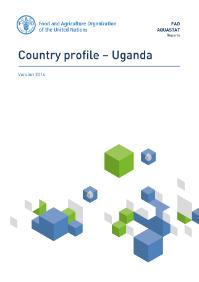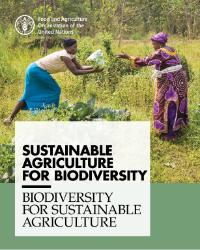Focal point
Location
The Food and Agriculture Organization of the United Nations leads international efforts to defeat hunger. Serving both developed and developing countries, FAO acts as a neutral forum where all nations meet as equals to negotiate agreements and debate policy. FAO is also a source of knowledge and information. We help developing countries and countries in transition modernize and improve agriculture, forestry and fisheries practices and ensure good nutrition for all. Since our founding in 1945, we have focused special attention on developing rural areas, home to 70 percent of the world's poor and hungry people.
Members:
Resources
Displaying 481 - 485 of 5074Propuesta de Lineamientos para el Monitoreo Comunitario Participativo En Colombia y su Articulación con el Sistema Nacional de Monitoreo de Bosques
This document presents the proposal for guidelines for Participatory Community Monitoring in Colombia, which includes elements for the integration of information registered at the local level with the National Forest Monitoring System led by the IDEAM (SMByC). In order to formulate these guidelines, the collective construction with communities that inhabit and own most of the forests in the country, Non-Governmental Organizations (NGOs), and international cooperation was key.
Aumentar el uso de las Directrices Voluntarias sobre la Gobernanza Responsable de la Tenencia entre las Organizaciones de la Sociedad Civil y de Base - Colombia
Aumentar el uso de las Directrices Voluntarias sobre la Gobernanza Responsable de la Tenencia entre las Organizaciones de la Sociedad Civil y de Base – Colombia es una hoja que ofrece información sobre el proyecto "Aumentar el uso de la DVGT entre las Organizaciones de la Sociedad Civil y de Base", una visión general de la gobernanza de los recursos naturales en el país e información sobre las actividades realizadas en el país en colaboración con las OSC locales y las organizaciones de base.
Propuesta de Lineamientos para el Monitoreo Comunitario Participativo En Colombia y su Articulación con el Sistema Nacional de Monitoreo de Bosques
This document presents the proposal for guidelines for Participatory Community Monitoring in Colombia, which includes elements for the integration of information registered at the local level with the National Forest Monitoring System led by the IDEAM (SMByC). In order to formulate these guidelines, the collective construction with communities that inhabit and own most of the forests in the country, Non-Governmental Organizations (NGOs), and international cooperation was key.
Country profile – Uganda
This country profile describes the state of the water resources and water use, as well as the state of agricultural water management in Uganda. The aim of this report is to describe the particularities of the country and the problems met in the development of the water resources, and irrigation in particular. Irrigation trends, existing policies and legislation to water use in agriculture, possible treaties and agreements between countries as well as prospects for water management in agriculture are presented, as described in literature.
Sustainable Agriculture for Biodiversity – Biodiversity for Sustainable Agriculture
This brochure presents FAO’s work on mainstreaming biodiversity as a cross-cutting theme in the agriculture, fisheries and forestry sectors. It provides examples of on-the-ground activities and highlights relevant international mechanisms. It shows how biodiversity and ecosystems benefit people in countless ways by providing food, clean water, shelter and raw materials for our basic needs. Agriculture is a major user of biodiversity but also has the potential to contribute to the protection of biodiversity.










